Baking Soda For Gray Hair: To Use Or Not To Use
In spite of its popularity, this DIY method using baking soda to lighten gray hair may not be good for your hair. Moreover, there are natural alternatives that are worth trying.
On Jan 24, 2024 – 6 minutes read
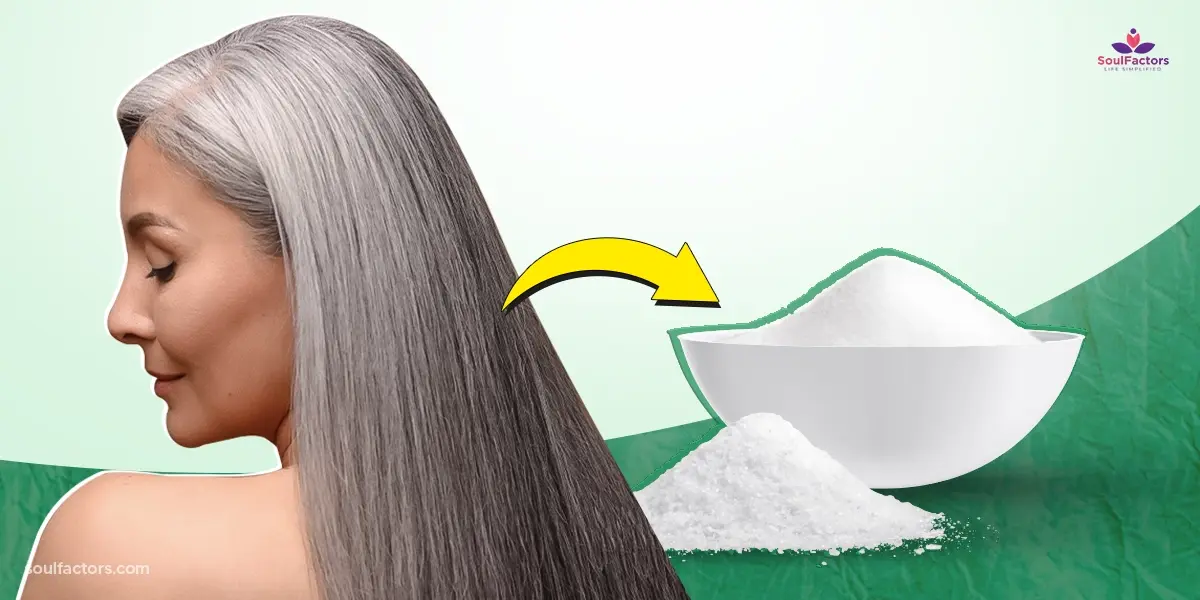
Baking Soda is a staple household item that most of us would find in our kitchen. It is widely used in cooking, cleaning, and personal care items. Recently it has found its way into the beauty space as well, with many using baking soda for gray hair. People with grey hair have been using it to brighten their hair. But its effectiveness is debated, and it has to be used with caution. Here’s why.
What Is Baking Soda?
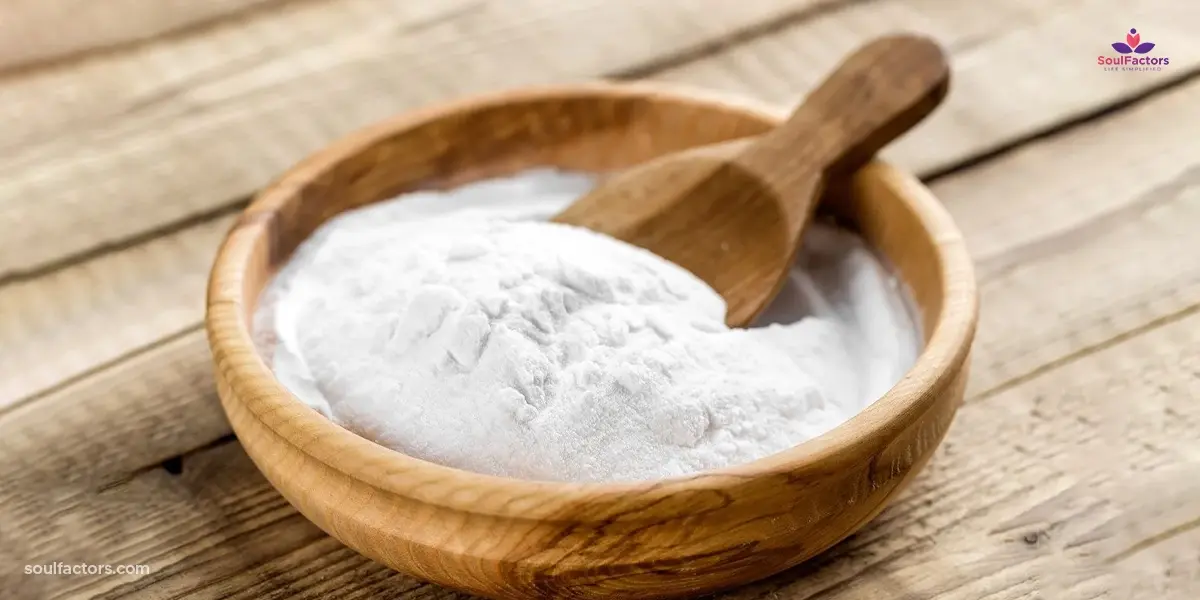
Baking soda, scientifically known as sodium bicarbonate, is a white crystalline powder with alkaline properties. It is commonly used in cooking, baking, cleaning, and personal care.
What Does Baking Soda Do To Gray Hair?
Baking soda is often suggested as a DIY solution to lighten gray hair due to its mild abrasive and alkaline properties. How to use baking soda for gray hair?
- Using baking soda alone: The alkalinity of baking soda contributes to opening up hair cuticles, aiding in the removal of some color.
- Using baking soda with hydrogen peroxide: Some people combine hydrogen peroxide with baking soda, which is a known hair-lightening agent.
- Using baking soda with anti-dandruff shampoo: This is another popular DIY technique to lighten hair gradually over time.
- Vinegar and baking soda for gray hair: This is another hair-lightening method popularized especially on the internet.
⚠️While these methods are commonly shared online, they may not be the ideal strategies for lightening gray hair. Baking soda can be harsh on the hair and scalp, potentially causing dryness and damage.
Why You Should Avoid Using Baking Soda On Gray Hair
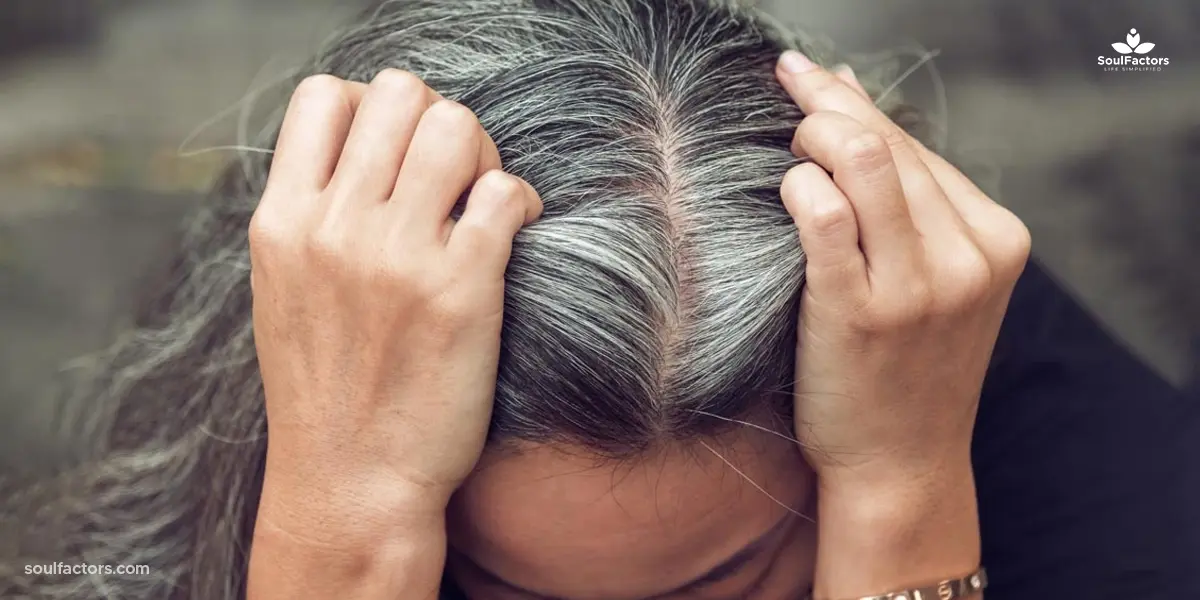
While baking soda is a versatile household ingredient, using it on hair comes with potential drawbacks. Many experts advise caution for the following reasons:
Gray hair is more delicate than pigmented hair
Gray hair tends to be more delicate, finer, and often drier than pigmented hair. Baking soda(1) can exacerbate these conditions.
Gray hair has high porosity
Gray hair is more porous, meaning it can absorb substances more readily. Baking soda’s alkalinity penetrates the hair shaft, causing damage.
Gray hair lacks melanin – a protective pigment
Melanin, the pigment responsible for hair color, plays a protective role. Gray hair lacking melanin, is more susceptible to damage, and baking soda could further compromise the protective barrier.
Gray hair is prone to yellowing or discoloration
Baking soda’s pH interferes with the natural silver or gray tones, leading to an undesirable color shift.
Gray hair is more prone to dryness
Baking soda’s stripping effect on oils can further deplete the moisture content.
Gray hair has a naturally weakened structure
Aging hair, including gray hair, has a weakened structure. Baking soda’s potential to raise the cuticle may compromise the structural integrity of the hair.
Gray hair frizzes easily
Baking soda can leave hair cuticles open and rough, contributing to increased frizz and lack of shine, which is particularly noticeable on gray hair.
Baking soda can imapir the pH imbalance of hair
The alkaline nature of baking soda can disrupt the slightly acidic pH of the hair negatively affecting its health and appearance.
Alternative Methods To Lighten Gray Hair
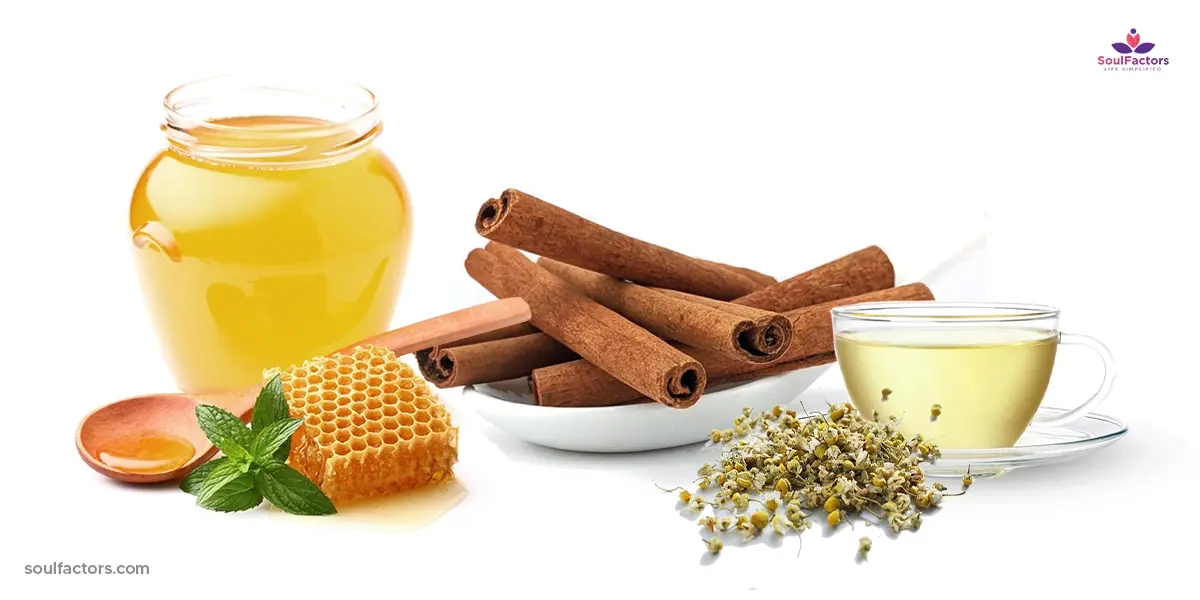
If you’re looking to lighten your hair without resorting to baking soda, there are several alternative methods to consider:
- Professional hair color services: You can get hair lightening highlights done at a salon. It is a better alternative than baking soda because the dyes used are good for the hair and do not damage the hair follicles.
- Lemon Juice: Lemon juice is a natural lightning agent due to its acidity and citric acid content. Applying fresh lemon juice to your hair and exposing it to sunlight can gradually lighten your locks.
- Chamomile Tea: Chamomile has natural brightening properties. Brewing strong chamomile tea, letting it cool, and using it as a hair rinse can add subtle highlights over time.
- Honey and Cinnamon: A mixture of honey and cinnamon can create a natural hair-lightening mask. While the effects may be subtle, regular use results in gradual lightening of the hair.
- Honey and Vinegar: Combining honey and apple cider vinegar creates a conditioning and lightening treatment. Apply this mixture to your hair and let it sit for about 30 minutes before rinsing.
- Saltwater Spray: If you’re near the ocean, saltwater can naturally lighten your hair. You can create a saltwater spray by mixing sea salt with water and spraying it on your hair before spending time in the sun.
- Hydrogen Peroxide: While similar to baking soda in some methods, using hydrogen peroxide in moderation and with caution can help lighten hair. Dilute it with water and apply it as a spray or with a cotton ball, leaving it on for a short time before rinsing.
How To Preserve Your Hair Strength And Color?
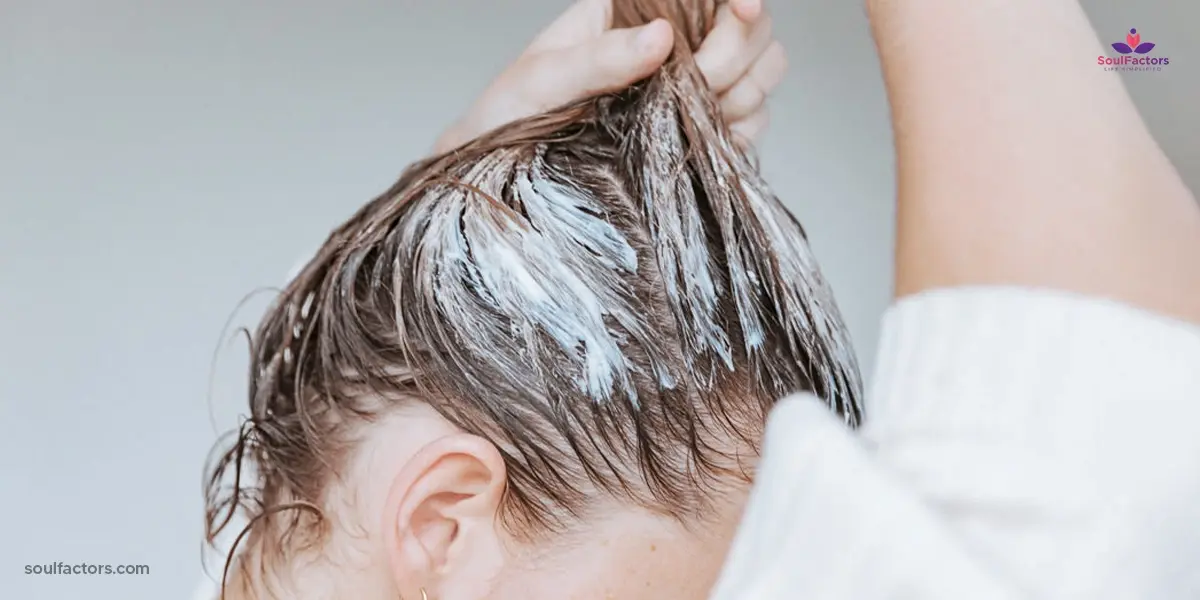
Deep conditioning is crucial for gray hair due to its natural dryness, reduced elasticity, and higher porosity. We have some tips to help you maintain the strength and shine of your hair.
- Protect your hair from UV Rays: Sun exposure can fade hair color and weaken the hair structure. Wear hats or use UV protection sprays to shield your hair from harmful UV rays, especially during prolonged sun exposure.
- Deep condition regularly: Treat your hair to deep condition treatments to keep it moisturized and nourished. This helps prevent dryness and breakage, preserving both strength and color.
- Avoid heat styling: Excessive heat styling can damage hair and fade color. Minimize the use of flat irons, curling irons, and blow dryers, use them on low heat settings, or prefer heatless styling tools over them. Apply a heat protectant before styling.
Frequently Asked Questions
Baking Soda can be used to lighten gray hair, but its harsh nature may lead to dryness and damage with prolonged use.
Baking Soda can alter hair color slightly, especially with repeated use, but it’s not a recommended method for significant color change.
You should not leave baking soda on your hair for more than 15 minutes.
Many people used to do this, but it can dry out the hair and cause damage.
No, baking soda is not a bleach.
Baking soda can be harsh on hair. Therefore, it not advised to wash hair with baking soda regularly.
No, baking soda does not thicken hair, it is majorly used to lighten hair.
Yes, baking soda can damage your hair causing dryness, breakage, and irritation to the scalp.
Yes, it has mild exfoliating properties which helps in reducing dandruff. But it is not a long-term solution and should be used with caution.
Final Words
We get it! Those cool TikTok and Instagram DIYs may have sparked your interest in trying baking soda for gray hair brightening. It seems like a budget-friendly idea, but before diving in, take a moment to think about it. The potential harm it could cause might outweigh the immediate appeal. Dry, brassy hair isn’t the prettiest sight, is it? Think about it before getting influenced.

Subscribe to Newsletter
Elevate your routine, stay on trend, and embrace a personalized beauty journey with our curated insights.


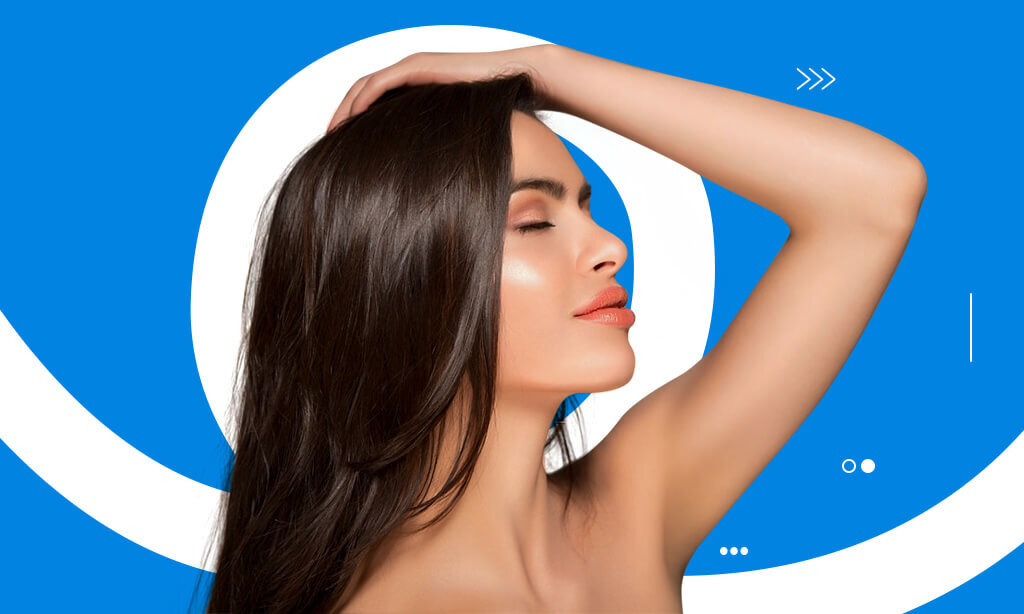
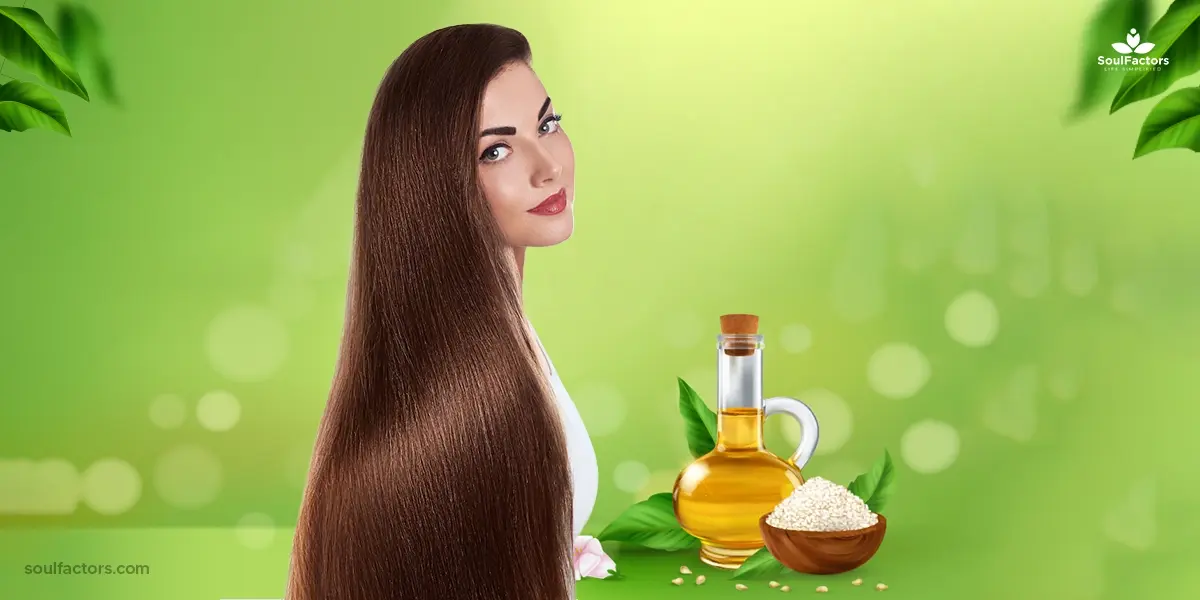
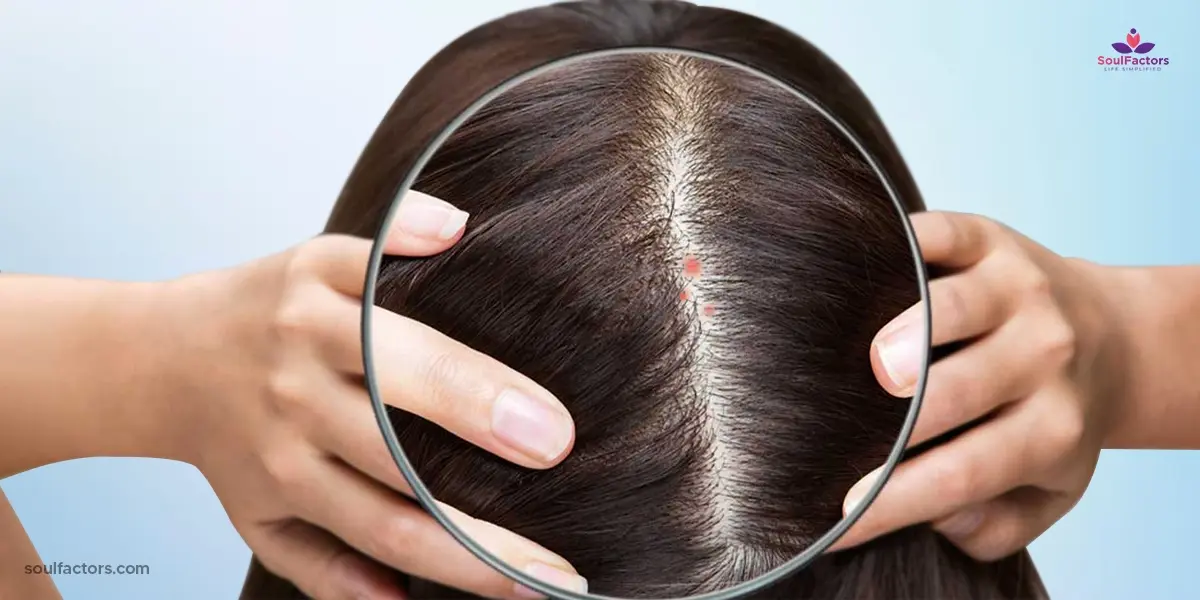
Write a Comment